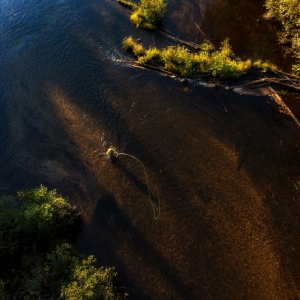The Stream, November 9, 2021: Drought Worsens Throughout Kenya
YOUR GLOBAL RUNDOWN
- Drought is driving residents out of southern Iraq’s once infamous marshlands and killing of livestock.
- Newark, New Jersey replaces nearly all of its lead service lines in only three years.
- A water crisis in a small town in northern Canada has cost officials more than one million dollars in less than a month.
- Environmental activists and Indigenous groups are protesting a proposed lithium mine in Nevada.
Drought is causing a crisis in Kenya.
“If they die, we all die.” – Yusuf Abdullahi, a pastoralist in Kenya who has lost 40 goats due to ongoing drought. Drought is causing a crisis in northern Kenya. A photo essay from the Associated Press documents life in the East African country, where livestock and wildlife are dying off at alarming rates. According to the United Nations, more than two million people face extreme hunger. Experts say that as climate change worsens, countries across Africa will suffer the most, even though they contribute to global warming the least.
IN RECENT WATER NEWS
In Case You Missed It:
HotSpots H2O: World Spending on Climate Adaptation Must Increase Five- or Tenfold – While climate adaptation planning is more widespread than ever, the U.N. says the gap between current spending and needed funding is enormous, and widening.
What’s Up With Water – November 8, 2021 – This week’s episode covers a declaration from Colombian officials at COP26 and an Oregon city working to keep Google’s water consumption out of the public eye.
Drought Drives Residents Out of Southern Iraq’s Marshlands
In Iraq, extreme drought is drying up ancient wetlands in Iraq. NPR reports that the drought—coupled with damming projects in Turkey and Iran—have decreased river flows by more than a third from the 1970s to today, according to Iraq’s Ministry of Water Resources. While families flee the area, animals are left behind. As marsh levels dropped, the water became too salty for water buffalo to drink. Many fell sick, developing worms or other illnesses.
TODAY’S TOP WATER STORIES, TOLD IN NUMBERS
3 YEARS
After three years, nearly all of the 20,000 lead service lines in Newark, New Jersey have been replaced. The project had originally been estimated to take up to 10 years to complete, according to the Associated Press. The city started replacing the pipes in 2019, after public outrage ensued upon the discovery of high lead levels in the tap water in city schools and homes.
$1.5 MILLION
Nearly a month after discovering a fuel leak that contaminated water supplies, officials in the city of Iqaluit in northern Canada say the crisis has cost the municipality more than $1.5 million so far. CBC reports that the city has spent over 60 percent of those funds on water rebates for residents, and is expected to spend another $241,420 in water rebates for the first week of November.
ON THE RADAR
Environmental activists and Indigenous groups are protesting a proposed lithium mine in Nevada, Inside Climate News reports. The project’s opponents say lithium extraction, which they see as the latest gold rush, could lead to otherwise avoidable environmental degradation, although many other environmental activists see mining for elements as a necessary way to wean the world off of fossil fuels. If completed, the project would consume 1.7 billion gallons of water each year, could reduce streamflow enough to endanger the already threatened Lahontan trout species, according to a lawsuit filed earlier this year.
Jane is a Communications Associate for Circle of Blue. She writes The Stream and has covered domestic and international water issues for Circle of Blue. She is a recent graduate of Grand Valley State University, where she studied Multimedia Journalism and Women, Gender and Sexuality Studies. During her time at Grand Valley, she was the host of the Community Service Learning Center podcast Be the Change. Currently based in Grand Rapids, Michigan, Jane enjoys listening to music, reading and spending time outdoors.






Leave a Reply
Want to join the discussion?Feel free to contribute!